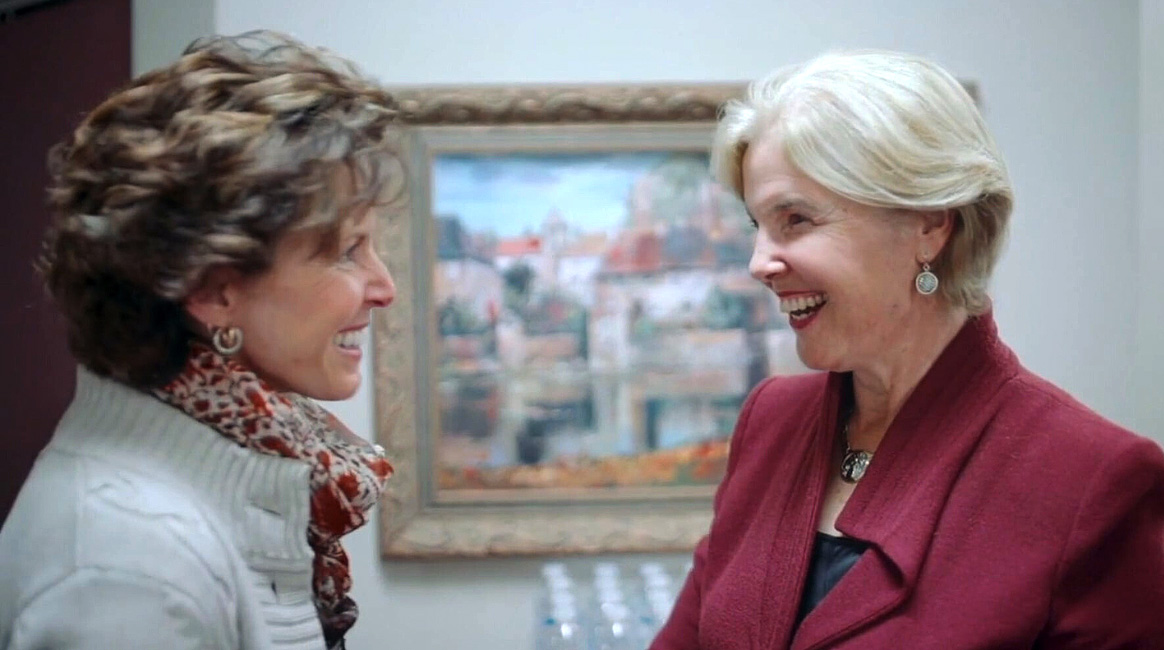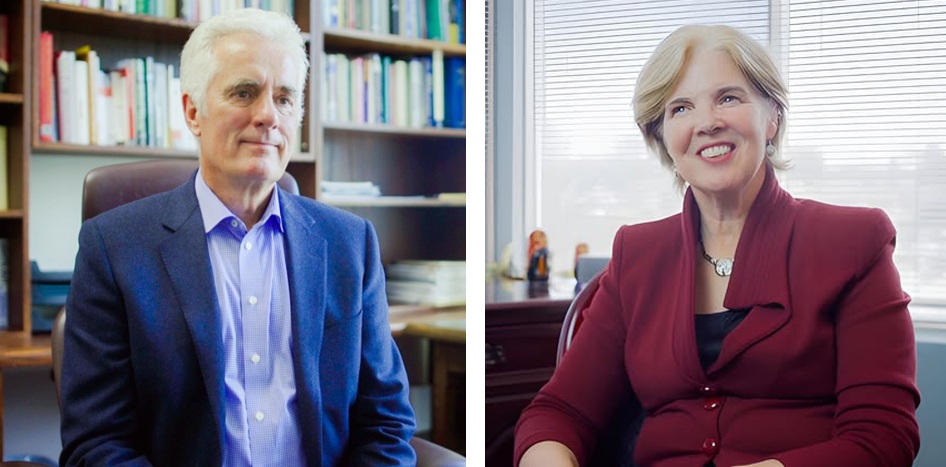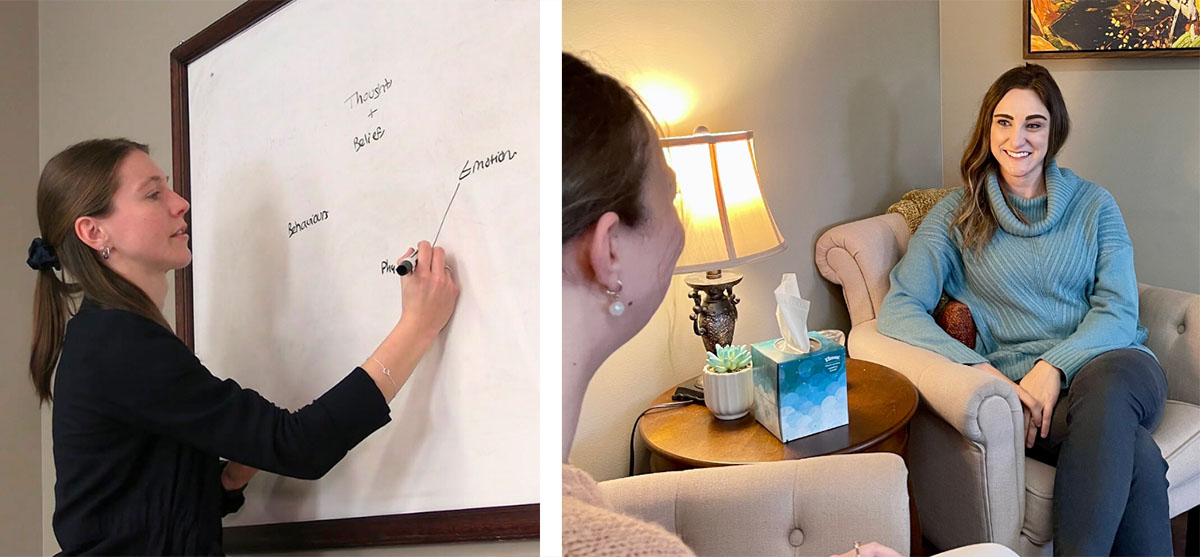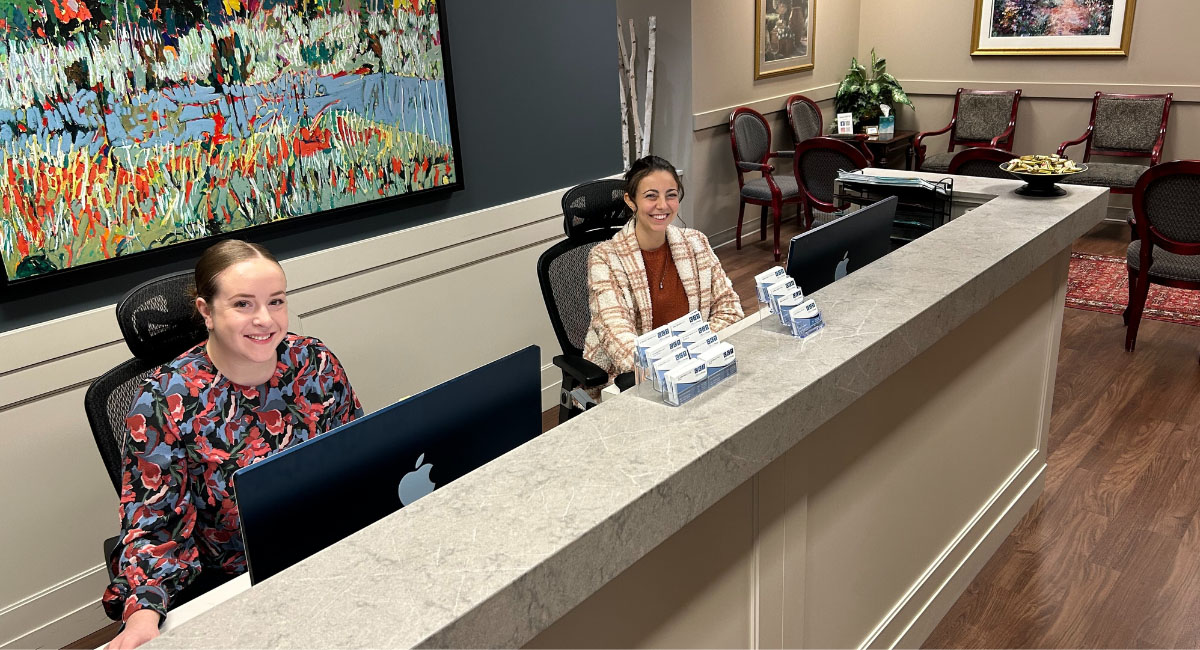
Community Caregiving the Cognitive Therapy Way
The Centre for Cognitive Therapy (CCT) will turn 30 next year. Easily one of Ottawa’s oldest clinics for cognitive therapy, it has enjoyed a successful run with consistent ratings as a clinic of choice for clients.
The CCT was founded by Dr. Arthur Blouin and Dr. Jane Blouin in 1995, following their training in the U.S. under Dr. Albert Ellis, the founder of Cognitive Therapy, as well as Dr. Christine Padesky, founder of the Academy of Cognitive and Behavioral Therapies.
The couple, who are now co-directors of the CCT, initially ran Ottawa’s first eating disorder clinic at the Ottawa Civic Hospital (1984-1994) before opening the CCT to address the rising demand for therapy to combat eating disorders, anxiety, depression, stress management, relationship concerns, and other mental health issues.

ABOVE: Arthur Blouin, C. Psych., and Jane Blouin, C. Psych., are co-directors of the Centre for Cognitive Therapy.
An evidence-based cognitive therapy model that focuses on providing solutions using a scientific and research-based approach has proven much more successful than other conventional forms of therapy, with longer-lasting results. “In the past 30 years, we would have seen close to 30,000 patients and about 40 percent of them who come in are suicidal. Yet, in all these years, we have had just one suicide case. So I think we’re definitely helping,” says Dr. Arthur Blouin.
The Success Story
The CCT currently has 12 therapists, most of whom have client ratings of over 9 out of 10. The practice began with six offices and has grown to 15 at the current location on Morrison Drive, with more expansion and hiring are planned to keep up with the exponential demand.
So what is the key to the CCT’s popularity? “Art and I set a pretty high bar when it comes to the centre’s standards. That translates to our stringent hiring process, our focus on constant learning, training and development for all our staff to ensure there is no complacency or redundancy, as well as our unique, in-depth client intake process,” avers Dr. Jane Blouin.

ABOVE: Kelsey Marshall, M.A., RP explains the Cognitive Model. RIGHT: Dr. Deanna Davis. C. Psych. meets with a client.
All CCT psychologists are registered with the College of Psychologists of Ontario, while the psychotherapists are registered with the College of Registered Psychotherapists of Ontario. They are all dedicated to cognitive therapy, with a willingness to continue learning and honing their craft and a natural ability to connect with people. Regardless of how long they have worked at the centre, each one meets with Dr. Arthur once a week for professional development to further their knowledge and learn about advancements in cognitive therapy. Additionally, they meet with Dr. Jane once a week for individual case management.
Matching Clients With Therapists
Dr. Jane believes clients are much happier when they feel they are well-matched. “Our unique intake process means that we emphasise matching clients with therapists significantly more than any other clinic in the city. Clients are matched with therapists based on preferences related to personality, demographics, style, and, most importantly, a therapist who has substantial experience in the specific problem area they wish to address. We have a therapist-matching questionnaire that considers all of the above, and is taken into account during the client-therapist matching process.”
She continues, “After clients have had four sessions with their therapist, we send out questionnaires to evaluate how happy they are with their therapy. We ask them a number of questions that indicate how satisfied they are. If we get one back that’s even slightly negative, we contact them right away and see if we can resolve the problem … we rely very heavily on the client’s feedback in terms of ensuring that we have a good match.”
“Research also clearly indicates that the more clients feel they are well matched to their therapist, the more likely they are to improve in terms of meeting their goals for therapy. I think this is a critically important aspect that sets our clinic apart from most others, and the client feedback on this approach has been excellent in terms of satisfaction ratings,” she adds.
Innovation at the CCT
While the CCT’s mission is to continue delivering client satisfaction by offering the best of ‘Third Wave’ cognitive therapy strategies such as Dialectical Behavior Therapy (DBT), Acceptance and Commitment Therapy (ACT), Cognitive Behavioral Therapy (CBT) and Mindfulness, technological innovation is also key to maintaining its cutting-edge standards.

ABOVE: Kristina Lennie, Business Operations Coordinator and Tara Snyder, Clinical and Administrative Coordinator at CCT.
“Coinciding with our 30th anniversary, we will be adding a fully automated psychiatric diagnostic interview that is computerized. The system will integrate AI to develop sophisticated case reports and treatment plans based on the information inputted from standardized diagnostic interviews and other psychological assessments. We have a paper currently being prepared for publication on one of these – the ‘Stressful Belief Index’ – which will be incorporated into the AI model we are developing. This marks a significant milestone for the CCT,” remarks Dr. Arthur.
The CCT has also evolved with the progression of cognitive-based therapies over the years, ensuring it offers the most effective treatment to clients based on the latest research methodologies. In fact, Mindfulness Meditation, which is widely used at the clinic, can be employed to manage life stress even for those who do not suffer from mental health issues.
Changing Demographics
Growing mental health awareness in recent years has contributed to a spike in demand for therapy, primarily for anxiety and depression, exacerbated by the COVID-19 pandemic. Post-pandemic, the high rate of teenagers and adolescents seeking therapy has continued. “The demand exploded with COVID-19 because people were so isolated and lonely, and loneliness drives mental health problems. We had a waiting list of 400 people during the pandemic, and we had to stop accepting new clients because we were flooded,” notes Dr. Jane.
On the positive front, the growing recognition of the importance of mental health by employers, the government, and society has led to more people seeking therapy. This is facilitated by insurance coverage, time off from work to attend therapy, and other welfare benefits that they now have access to. Recently, Ontario also announced the launch of a new mental health program for first responders.
Combating the ‘Winter Blues’
Winter is ‘that time of the year’ when Seasonal Affective Disorder (SAD) becomes more prevalent. In tandem, there is an uptick in client demand for the CCT. Dr. Arthur believes this is caused by a number of factors, including loneliness during the holidays, holiday season stress, and decreased sunlight, as well as prolonged cold weather.
To prevent overall sluggishness, depression, and lower energy levels during winter, he suggests getting out more during daylight hours, exercising, socializing, and participating in outdoor winter activities.
A Life Dedicated to Compassionate Care
With over 40 years of experience in psychology and mental health, Dr. Arthur and Dr. Jane have contributed immensely to the community and helped shape the next generation of therapists. While Dr. Arthur has taught at prestigious universities, including Columbia University, George Washington University, Carleton University and University of Ottawa, both he and Dr. Jane have numerous publications in scientific journals and research papers and have presented at several global conferences.
The couple is committed to continuing to help people, as they are passionate about this profession that provides them with the utmost gratification. “I really like studying human beings and what makes them thrive. I also love the fact that we’re able to help people. I don’t think we’re there yet, but we continuously strive to solve the puzzle of maximizing our ability to live a full, healthy, long life. This is what drives me,” reveals Dr. Arthur.
He adds, “A lot of times, people tell both Jane and me how we’ve effectively saved their lives, or their families divulge how their loved one’s quality of life has been dramatically transformed from a really harmful psychological state, such as suicidal tendencies. That is so satisfying and rewarding to hear.”
For more information on the CCT, visit https://ocbt.ca/contact/ or email admin@ocbt.ca
Photos: Courtesy the CCT









